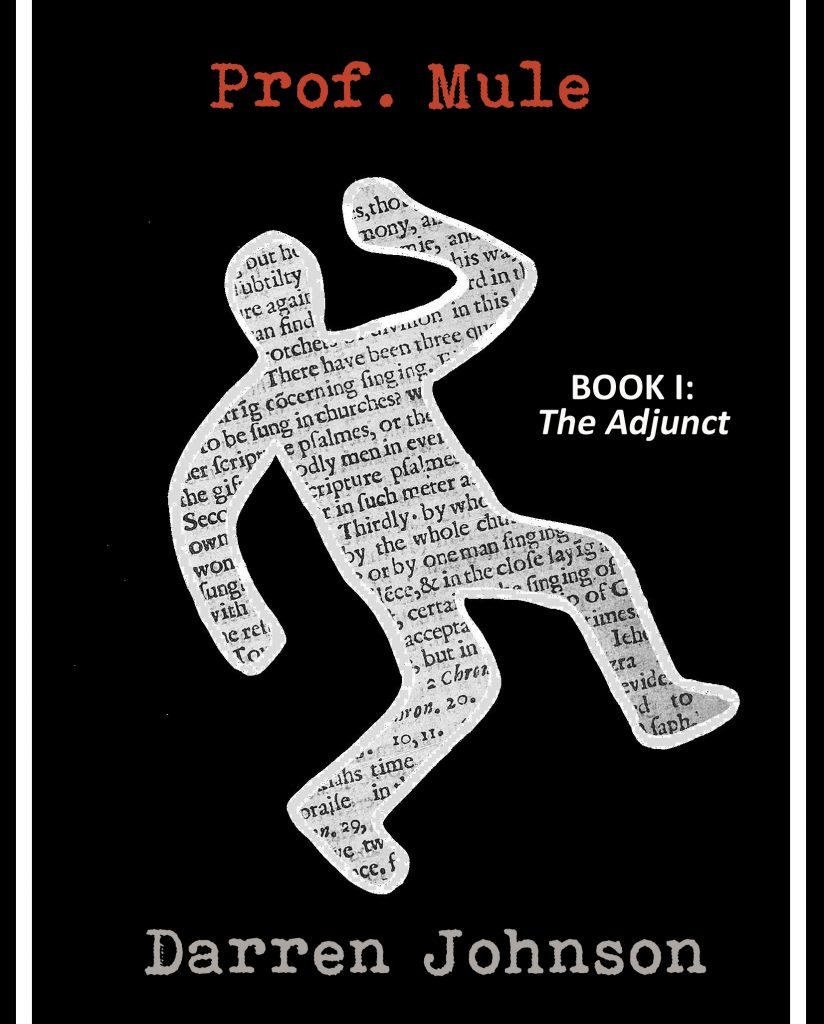By Darren Johnson
Campus News
I grew up in a house without books. Not anything serious, anyway. There were a few first aid and medical deformity books my father had copped from the hospital, where he sometimes worked as an orderly. Then, he found several volumes of an old encyclopedia set in a trash heap that he’d brought home. That was about it.
And, since, I have gotten a bachelor’s and a master’s in English – so I feel qualified to write this article, “How to read a book – and like it.”
![]() The sad fact is, about 95 percent of your classmates walked right by this newsstand and ignored this newspaper, even though it was written expressly for them, and surely there is at least one tidbit in here worth a look. Even if it’s just by “Broom Hilda.” If confronted about their lack of literary initiative, they may say they read things on their smart phone. But are they really reading “writing?” Or are they just looking at stuff?
The sad fact is, about 95 percent of your classmates walked right by this newsstand and ignored this newspaper, even though it was written expressly for them, and surely there is at least one tidbit in here worth a look. Even if it’s just by “Broom Hilda.” If confronted about their lack of literary initiative, they may say they read things on their smart phone. But are they really reading “writing?” Or are they just looking at stuff?
I teach Mass Media and recently asked one of my classes this question, and they admitted that the smart phone isn’t all that smart considering the way their peers look at it; it’s more like TV than a newspaper or book. Past generations used to call TV “the boob tube.” We need to come up with an equally disparaging name for the so-called smart phone.
The fact that you picked up this newspaper, though, shows that you are not like your fellow classmates. A recent statistic says that 42 percent of college grads will never read a book again after graduating. For community college grads, perhaps that number is even worse. Assuming these graduates live to a normal old age, that’s 60 years of not reading a single book! They should have their degrees revoked.
You apparently have a desire to read, but you’d probably like to be better at it. Here’s what I learned, growing up in a house without books:
Read Periodicals
Periodicals are newspapers and magazines. These have more digestible, shorter stories, and are the gateway to books. People are reading less books today because they are reading less newspapers. In past generations, the newspaper was a staple. Most people picked it up or had it delivered to their doors. But printed news has gotten a bad rap, and now people pretend to read news on their smart phones. But it’s just headlines and clickbait. Real journalists are getting laid off en masse.
Magazine and newspaper subscriptions may be as little as one dollar per issue. Even if you only read a couple of articles each issue, that’s money well spent. What’s a dollar?
The brain is a muscle and books are a major sporting event. Consider reading periodicals the same doing a few jumping jacks and pushups before that big game. They are a useful warmup.
In my house without books, we did have various periodicals floating around. I’d devour these. But without having books, I had trouble developing reading stamina. That would come later on, gradually, over several years, thanks to the school library and authors like CS Lewis.
Read Slowly
It is OK to read slowly and to read every line twice. I recently did this for “A Confederacy of Dunces” by John Kennedy Toole, a very dense, but rewarding book. I remember much more detail from this literary book, which I took my time with, than any genre book I’d ever read; for example, some summer detective novel like “H Is for Homicide” by Sue Grafton was a quick and easy read, and I remember little of it.
Read Quickly
But you are a student, and have four to six courses going on right now. You can’t read all books slowly. For books that are written mainly for informational purposes, I find that I can read them quickly to gather the information I need. I can even get the Kindle version and swipe through that in no time. Develop different reading speeds based on the complexity of the writing, and your goal for reading it.
Use Google
Pre-Internet, if I read a book and didn’t understand a passage, I would have to suffer and not know what it meant. Or, at best, write down my question and investigate it when the library opened the next day.
Now, with Google, I instantly can look up a reference. For example, I recently was reading “The Thin Man” by Dashiell Hammett and there was a 1930s pop-culture reference I’d never seen before. A quick search, and the reference made total sense in relation to the character. Without that search, I may have gotten distracted and lost in the book, maybe even daydreaming.
Drink Coffee or Tea
One of my students admitted that she falls asleep when trying to read a long passage. It’s OK to get caffeinated and treat reading seriously. Sometimes, I also listen to music – not new music, but music that is very familiar to me. Playing the music at the same time as reading somehow helps me better commit the book to memory.
Get in Shape Mentally
Just like you can be out of shape physically, you can be out of shape mentally. Reading a book takes a lot of exercise beforehand. It’s not an easy feat, at first. After you get into a rhythm, you will be able to rifle through books. You will also learn to enjoy reading.
Most of your classmates aren’t reading as much as they should be. You can be different.
This past summer, I spent time going to a bunch of different beaches and pools. One pool was in a wealthy area and was relatively expensive to get into. The one difference I noticed was, everyone at the expensive pool was reading. At the free beaches, few people were, if any (besides me). It takes money to make money, as they say, and the wealthier people were willing to spend money on reading material.
If you want to go to a great four-year college and/or go on to a more sophisticated life, reading is the ticket. Periodicals and books are packed with useful information that will improve your life.
Just, first, you have to get into mental shape for it. Start with periodicals, including this one.
And that’s the last word … for now.
 Darren Johnson has an MFA in Writing from Southampton College and can be reached at dj@cccn.us.
Darren Johnson has an MFA in Writing from Southampton College and can be reached at dj@cccn.us.






Facebook Comments